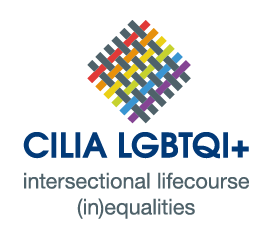
CILIA-LGBTQI+
Comparing Intersectional Life Course Inequalities amongst LGBTQI+ Citizens in Four European Countries
Bringing together an international and multi-disciplinary team of researchers, this project investigates potential inequalities experienced by Lesbian, Gay, Bisexual, Transgender and Queer (LGBTQ) people at three ‘transition’ points in life highlighted in the call for application themes: school to work transitions; employment progression in mid-life; and the transition into retirement and its implications for end of life. The key objective is to provide cross-cultural evidence, for the first time ever, concerning life course inequalities experienced by LGBTQ people, comparing and contrasting these across four European countries with different yet interrelated social, historical, economic and political backgrounds: England, Scotland, Portugal and Germany. Additionally, the project examines how inequalities related to gender identity and/or sexuality vary and intersect with others, such as social class, ethnicity, citizenship status, health status, dis/ability, religion and geographical location across the life course.
Work-packages, led by research team members will be conducted in each of the four countries to gather data from existing national and international surveys, new qualitative research and legal, policy, organisational and practitioner documents.
The accumulated data will also be used to develop a multi-agent based simulation model to inform theoretical development in relation to the LGBTQ intersectional life course and explore future policy and research agendas. The findings will be disseminated to academics and relevant stakeholders (e.g. organisations/service providers) through reports, social media, presentations and knowledge exchange activities in each applicant country.
University of Surrey / United Kingdom - Coordinating institution
University of Strathclyde/ United Kingdom
Alice Salomon University, Germany

